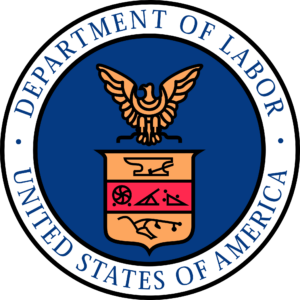 On April 23, 2024, the Department of Labor (DOL) announced a significant change impacting the Fair Labor Standards Act (FLSA). This new rule will notably increase the salary threshold for employees to be classified as exempt from overtime pay. As this rule takes effect, employers and employees must understand its implications and prepare accordingly.
On April 23, 2024, the Department of Labor (DOL) announced a significant change impacting the Fair Labor Standards Act (FLSA). This new rule will notably increase the salary threshold for employees to be classified as exempt from overtime pay. As this rule takes effect, employers and employees must understand its implications and prepare accordingly.
The Situation Before the New Rule
Before the implementation of the new rule, the minimum salary requirement for most executive, administrative, and professional exempt employees is $684 per week, equivalent to $35,568 annually. This threshold determines whether certain employees are eligible for overtime pay. Employees earning below this amount are entitled to overtime pay (typically one and one-half of their regular wage) for hours worked over 40 in a workweek.
Prior to the new rule’s implementation, highly compensated employees (HCEs) had an even higher threshold, with a minimum total annual compensation requirement of $107,432, including a weekly salary of at least $684.
Key Changes in the New Rule
The DOL’s final rule introduces substantial changes:
-
Increased Salary Thresholds:
- Starting July 1, 2024, the minimum salary for most executive, administrative, and professional exempt employees will increase to $844 per week (or $43,888 annually).
- Beginning January 1, 2025, this threshold will ther to $1,128 per week ($58,656 annually).
-
Highly Compensated Employees (HCEs):
- The new rule raises the minimum total annual compensation for HCEs to $132,964, with at least $844 per week paid on a salary or fee basis starting July 1, 2024.
- Beginning January 1, 2025, the HCE compensation threshold will increase to $151,164 annually, including a weekly salary of at least $1,128.
-
Future Adjustments:
- Starting July 1, 2027, the salary and total annual compensation thresholds will be updated every three years based on current earnings data.
Preparing for Compliance
Employers must prepare for compliance with these new thresholds by July 1, 2024. Here are some steps to consider:
- Salary Adjustments: Employers need to decide whether to increase employees’ salaries to meet the new thresholds or reclassify them as non-exempt. Reclassified employees will be entitled to minimum wage and overtime pay.
- Timekeeping PolicieAccurateate time tracking will become essent for employees reclassified as non-exemptial. Employers should train these employees on timekeeping procedures and policies to ensure compliance, including obtaining approval for overtime and avoiding off-the-clock work.
- Review Benefit Plans: Employers should review their employee benefit plans to assess the impact of these changes and make necessary adjustments.
- Update Personnel Documents: Revisions to personnel documents, agreements, and policies may be required to clarify employee classification and compensation changes.
Legal Challenges and Guidance
While the final rule is being challenged in court, it remains uncertain if a ruling will be made before the effective date. Therefore, employers should begin preparations now. Consulting with employment counsel is crucial to ensure compliance that aligns with the organization’s financial and business needs.
Conclusion
The DOL’s new rule on the minimum salary for overtime exemption marks a significant shift in labor standards. Employers must stay informed proactively to comply with the new requirements. By understanding the changes and preparing accordingly, businesses can navigate this transition smoothly, ensuring compliance and maintaining workforce satisfaction.
For more detailed guidance and assistance, contact our law firm. We are here to help you understand and implement the necessary changes to comply effectively with the new DOL.


